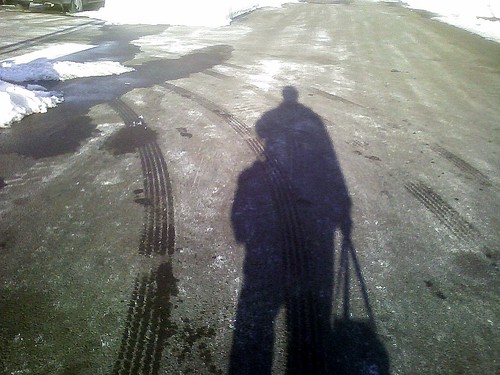I started to really like the weird, hard-edged look of photos I've taken from my car using my cameraphone. Most of these I've corrected somewhat using Picasa, mostly to sharpen edges and blow out the contrast even more, and sometimes to fool with the colors some. I've also used the online Flash-based editor Picnik a little. (If you have a Flickr account, try Picnik. It's fast, functional, well-thought-out and very good-looking.) Anyhow, I'm calling this look "neo-ugly." Here's a link to a set on Flickr that includes most of the pictures I've taken recently that qualify, I think, as "neo-ugly." Most, but not all, are cameraphone shots. They're all outdoor. They're all messed-up in one way or another.
| www.flickr.com |




